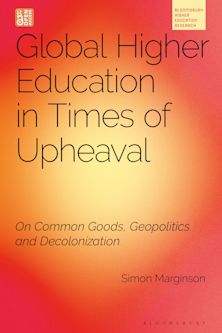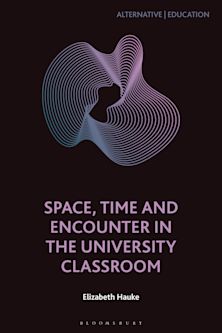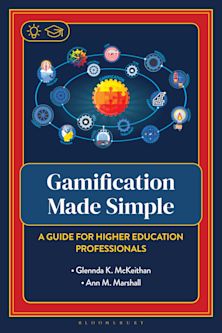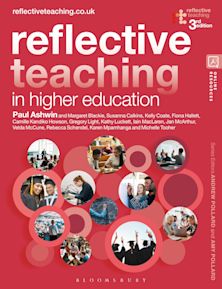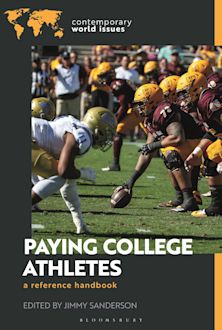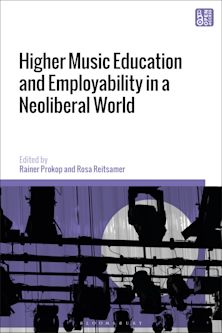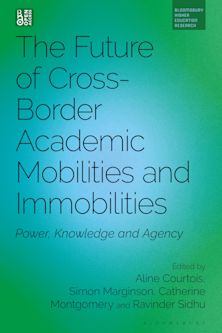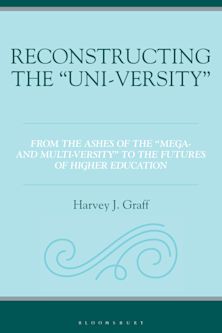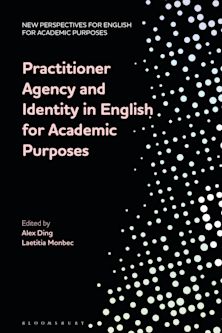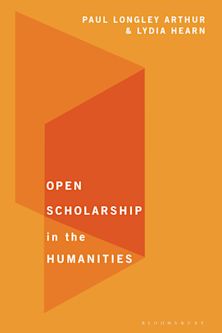- Home
- ACADEMIC
- Education
- Higher Education
- University Ethics
University Ethics
How Colleges Can Build and Benefit from a Culture of Ethics
University Ethics
How Colleges Can Build and Benefit from a Culture of Ethics
You must sign in to add this item to your wishlist. Please sign in or create an account
Description
Stories about ethical issues at universities make headlines every day. From sexual violence to racial conflict, from the treatment of adjuncts to cheating, students, professors, and administrators face countless ethical trials. And yet, very few resources exist to assist universities in developing an ethical culture. University Ethics addresses this challenge. Each chapter studies a facet of university life—including athletics, gender, faculty accountability, and more—highlights the ethical hotspots, explains why they occur, and proposes best practices.
Professional ethics are a key component of training for numerous other fields, such as business management, medicine, law, and journalism, but there is no prescribed course of study for the academy. Professors and administrators are not trained in standards for evaluating papers, colleagues, boundaries, or contracts. University Ethics not only examines the ethical problems that colleges face one by one but proposes creating an integrated culture of ethics university-wide that fosters the institution’s mission and community. In an environment plagued by university scandals, University Ethics is essential reading for anyone connected to higher education today.
Table of Contents
2: EthicsToward a History of University Ethics
3: The Adjunct Faculty
4: The Cultural Landscape of the University without Ethics
5: Cheating
6: Undergraduates Behaving Badly
7: Gender
8: Diversity and Race
9: Commodification
A Conclusion: Class, Athletics, and Other University Matters
Product details
| Published | 14 May 2015 |
|---|---|
| Format | Ebook (Epub & Mobi) |
| Edition | 1st |
| Extent | 296 |
| ISBN | 9781442223738 |
| Imprint | Rowman & Littlefield |
| Publisher | Bloomsbury Publishing |
About the contributors
Reviews
-
Keenan, who has written/edited some 16 books on theology and ethics, claims that the absence of an institutional ethical culture facilitates aberrant behaviors in US higher education. Universities offer courses in ethics but not in ethics as related to higher education institutions. Keenan considers ethical concerns with contingent versus tenure-line faculty; marginalization of university students and employees; dishonesty on the parts of students, faculty, and administrators; undergraduate carousing practices and violence; male-female inequities; disinterest in (or insensitivity to) differences; and the situation of international students. He points out that institutional levels are responsible for specific aspects of university life; accordingly, faculty, staff, students, and administrators remain unaware of one another’s struggles. And he argues that a prevailing culture of consumerism and consumption is largely responsible for condoning, even promoting, unethical behaviors. Keenan concludes with a call for collaboration among all involved with higher education to actively advance ethical behavior in their institutions. Providing just enough historical context, Keenan uses a narrative reporting style, interweaving research and relevant literature, scholarship, and media reports to develop his story and support his assertions. Summing Up: Recommended. All levels.
Choice Reviews
-
The book covers a number of issues, including gender inequity, sexual assault, racial discrimination, financial mismanagement, lack of access to college for poor students, and the skewing of priorities toward too-powerful sports programs. Keenan places a discussion of student behavior—drinking, harassing, and cheating—in the middle of the book. These are not simply problems for the students. They are problems for their universities. . . .Keenan has provided a roadmap for the challenging but necessary work of making a moral community. This matters for everyone who studies or works at a university. It matters for the 65 percent of U.S. students who just graduated from high school and have enrolled in college this fall. It matters for the half a million part-time faculty earning, on average, less than $3,000 per course. The work of making a moral community also matters for American society because, like churches, universities could reclaim their role as moral exemplars. All they have to do is practice what they preach.
Commonweal Magazine
-
Keenan, a well-published ethicist, has researched his topic thoroughly. The book is replete with references to the works of other experts; this alone makes it a valuable asset for those interested in higher education. In straightforward prose, Keenan begins with the adjunct faculty whose situation is one that ethically should embarrass both tenured faculty and administrators. Cheating, gender, racism, classism, fraternities, and student misbehavior are among the other issues explored. Before you conclude that all these have been discussed ad nauseam in recent years, I invite you to read Keenan’s analysis of, and suggested solutions for, their amelioration.
U.S. Catholic
-
Keenan’s work is multilayered, analytically sharp and engaging, and demonstrates not just the depth of his research but his own personal experience as a university professor. . . . If you have anything to do with the life of a university, even if you are simply a concerned alumnus, get this book.
America: The Jesuit Review of Faith & Culture
-
University Ethics is a powerful and empowering book in the right hands. Higher education administration could use Keenan’s insights to shape new strategic planning.This is apparent, but Keenan appears to have another primary audience in mind. The book addresses faculty members more than anyone else, putting us on notice of our responsibilities and capabilities to be influential agents of a culture of ethics on our campuses. This book comes at the right time as faculty across the spectrum are asking about our role in a dynamically changing landscape. We can either get carried away by the floodwaters of change or assert ourselves using valuable and well-thought out tools like University Ethics to re-center higher education in these exigent times.
Collegium: A Colloquy of Faith and Intellectual Life
-
James Keenan’s latest book compellingly argues that American universities (including Catholic universities) are failing to take ethics seriously within the confines of their own institutions.
Theological Studies

ONLINE RESOURCES
Bloomsbury Collections
This book is available on Bloomsbury Collections where your library has access.












